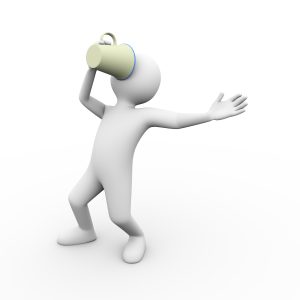People with Acquired Brain Injury (ABI), who also have cognitive impairment, may be at significant risk whilst eating/drinking. Difficulties with agitation, attention, memory, insight, disinhibition and self-monitoring can all impact upon the ability to eat and drink safely. Cognitive impairment can affect the person’s eating/drinking behaviours. People with significant cognitive impairment may demonstrate the following difficulties:
- Very rapid eating.
- Not chewing adequately.
- Overloading their mouth by putting too much food/fluid in at one time.
- Trying to take more food/fluid even though their mouth is still full.
- Not stopping and taking a break even if coughing/choking, in discomfort/distress or tiring.
- Not responding to prompts to support safer eating/drinking.
Challenging behaviour associated with cognitive impairment can also present significant risks; the risk of choking and aspiration can be increased if the person has a verbal or physical outburst.
Although the behaviours described above cannot be labelled as ‘Dysphagia’ they can, nonetheless, present risks to the person; management strategies may need to be put into place. These problems present significant additional risk if co-existing with dysphagia arising from Acquired Brain Injury.
It is important to note that the person with ABI and cognitive impairment may not recognise they have difficulties with eating or drinking, that they have dysphagia. This can arise because of difficulties with insight and awareness, memory and language comprehension – they may not understand the information they are given.